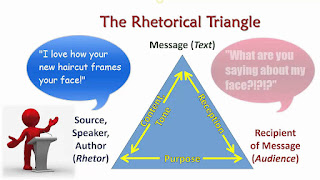The Study of Rhetoric: Exploring the Art of Persuasion
Introduction
Rhetoric, the art of effective communication and persuasion, has been studied and practiced for centuries. Originating from ancient Greece, rhetoric plays a pivotal role in various aspects of our lives, from public speaking and politics to written communication and advertising. This article delves into the study of rhetoric, its significance, and its practical applications in the modern world.
Understanding Rhetoric
Rhetoric, derived from the Greek word "rhetorikē," encompasses the art of using language and discourse to influence, inform, and persuade an audience. It involves employing powerful techniques, such as ethos (appealing to ethics), pathos (appealing to emotions), and logos (appealing to logic), to generate specific responses and desired outcomes.
By studying rhetoric, individuals can analyze and understand the persuasive strategies employed in various forms of communication, enabling them to better articulate their ideas and opinions. Rhetoric equips learners with the skills necessary to critically evaluate messages and engage in effective dialogue.
The Historical Significance
The study of rhetoric dates back to ancient Greece, where it held immense importance in public life. Prominent philosophers like Aristotle, Plato, and Socrates recognized the value of rhetoric in promoting democratic discourse and public deliberations.
Aristotle, in particular, contributed significantly to the field of rhetoric with his treatise "Rhetoric." In this work, he explored various strategies for effective persuasion, identifying the three modes of persuasion mentioned earlier: ethos, pathos, and logos. Aristotle's insights continue to influence rhetoric and communication studies to this day.
Modern Applications
While rhetoric initially focused on oratory skills, its applications have expanded in the modern world. Today, the study of rhetoric is integrated into educational curricula, empowering students to become better communicators, critical thinkers, and persuasive individuals.
Professionals in fields like law, politics, marketing, and journalism greatly benefit from studying rhetoric. Lawyers harness persuasive rhetoric to argue their cases, politicians use it to win over voters, and advertisers employ it to create enticing campaigns that resonate with the target audience.
Furthermore, rhetoric helps in interpreting and analyzing messages in the media, allowing individuals to distinguish between manipulative tactics and genuine arguments. Understanding rhetorical techniques aids in developing strong arguments based on facts and logical reasoning.
Conclusion
The study of rhetoric plays a pivotal role in enhancing communication skills and fostering persuasive abilities. By delving into the techniques and strategies employed in rhetoric, individuals can become more effective communicators, create powerful messages, and influence audiences. Rhetoric promotes critical thinking, enabling individuals to evaluate and respond to various forms of communication in a discerning manner. In our modern world, where information is abundant and persuasive tactics are prevalent, studying rhetoric equips us with the necessary tools to navigate and engage thoughtfully in discussions and debates.




No comments:
Post a Comment